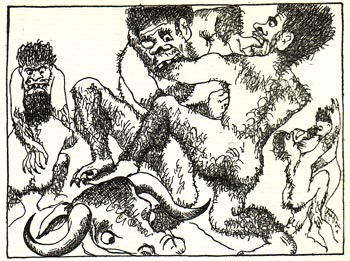 Our daughter came home one day shortly after starting school in England asking what the ‘pavement’ was. She was used to hearing her Irish parents call it the ‘path’. When she came to the US, she discovered that it was the ‘sidewalk’.
Our daughter came home one day shortly after starting school in England asking what the ‘pavement’ was. She was used to hearing her Irish parents call it the ‘path’. When she came to the US, she discovered that it was the ‘sidewalk’.
The variety of English that is spoken in Ireland has come to be known as Hiberno-English. You know it is real, because it has a Wikipedia entry. It also has a dictionary, compiled by Terry Dolan, and an accompanying website, a Hiberno-English Archive.
Hiberno-English is a singularly rich member of the family of Englishes and owes much of its vivacity and inventiveness to the underlying influence of the Irish Language and also to the turbulent history of the Irish and the English. [a HIBERNO-ENGLISH Archive]
A major factor in the development of Hiberno-English was that English was filtered through the sounds and structures available in the Irish language. (I note with interest that the Wikipedia entry for [the] Irish [language] has a note that its neutrality is disputed, and a link to further discussion.)
Here is the Archive entry for Yahoo – which I have mentioned in these pages before:
n. colloq. a name invented by Jonathan Swift (1667-1745) in Gulliver’s Travels for an imaginary race of animals having the form of men but the comprehension of brutes (‘The Fore-feet of the Yahoo differed from my Hands in nothing else, but the Length of the Nails, the Coarseness and Brownness of the Palms, and the Hairiness on the Backs’, Gulliver’s Travels, Part IV, Chapter 2). ‘Look at the way that old yahoo’s behaving over there — he must be drunk or something but, you know, it sets a bad example for the young people.’; O’Casey, The Plough and the Stars, Act 1, 144: “‘to look back in remember’ shame of talkin’ to a word-weavin’ little ignorant yahoo of a red flag Socialist'”, Leonard, Out After Dark, 190: “I had, he (Ernest Blythe) said, exposed him to the sneers of journalistic cornerboys and yahoos”, Kennelly, Poetry My Arse, 94: “Bearing bits of paper, bags and condoms | the hissing Liffey yahoos tonight | seawards with a cargo of our latest scandals.”
I came across the website earlier today, which prompted this entry. Now, when our children ask why we talk a particular way, we can point to it. I notice that there is no entry for path. However, in the age of participation, the archive accepts user input, so I can suggest it for inclusion. Isn’t the web wonderful!

